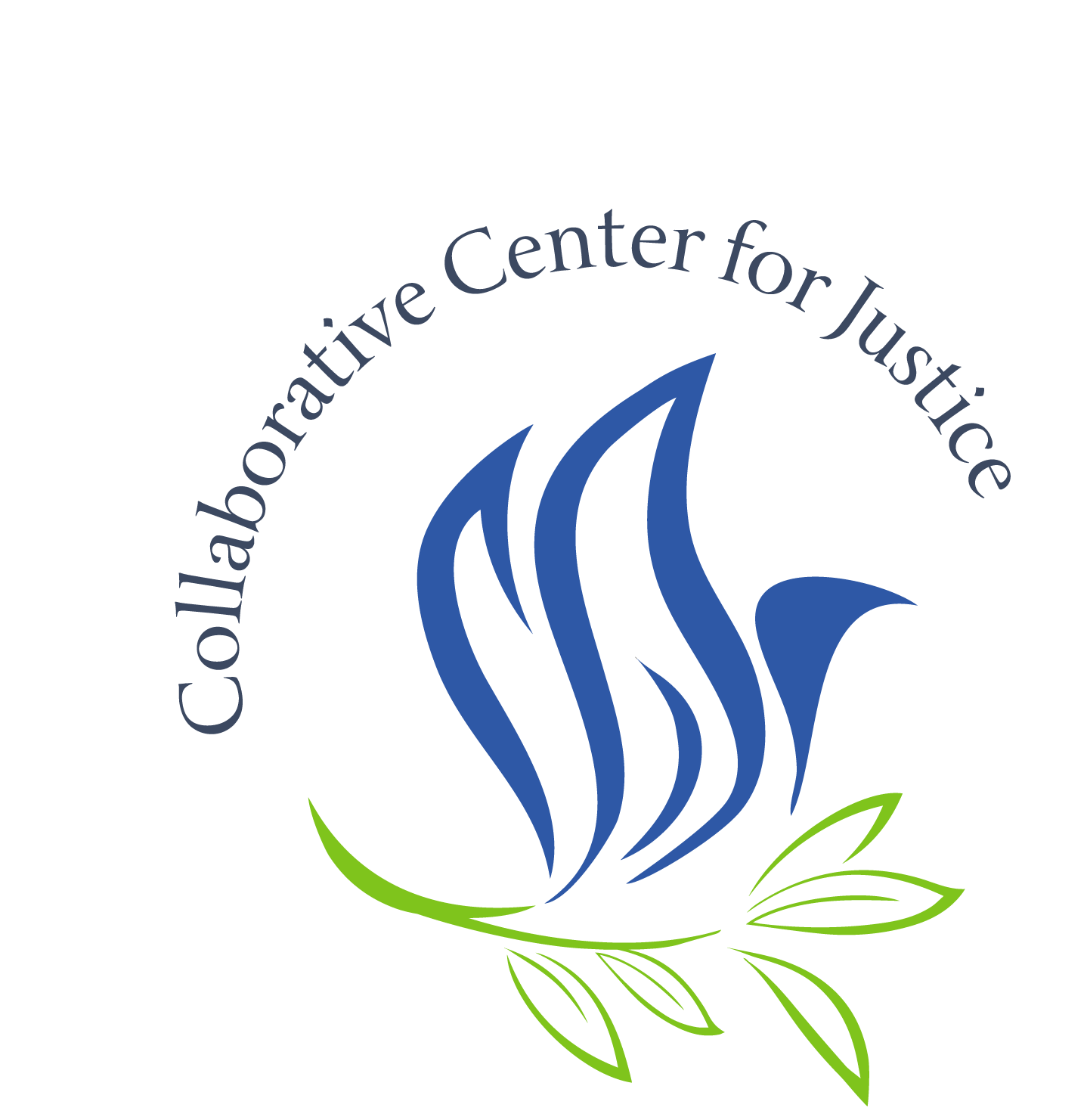Written Testimony Submitted to the Connecticut General Assembly Committee on Finance, Revenue and Bonding in Support of Sections 2 – 10 of Senate Bill 873: An Act Mitigating Adverse Tax Consequences Resulting from Employees Working Remotely During Covid-19, And Concerning the Removal of Liens on the Property of Public Assistance Beneficiaries and a Three-tiered Grants In Lieu Of Taxes Program.
February 16, 2021
To the Honorable John Fonfara and Sean Scanlon, Co-Chairs and members of the Finance, Revenue and Bonding Committee:
We are writing from the Collaborative Center for Justice, a Hartford-based social justice organization sponsored by six communities of Catholic women religious. We advocate for systemic change and educate individuals about justice issues in order to improve the lives of low-income and marginalized people. The Collaborative Center for Justice is one of 38 member institutions of the Greater Hartford Interfaith Action Alliance (GHIAA). Our testimony focuses on the section of the bill regarding repealing welfare liens.
We write in support of Sections 2 – 10 of SB 873 with modifications requested, including:
- With the passage of this bill, remove all existing real estate liens
- Eliminate the use of real estate liens entirely moving forward
- Exempt all legal settlements from recovery
- End all collections of claims for time spent in correctional facilities or state humane institutions
We support this legislation out of a concern for the effects of welfare liens on low-income individuals and families. The practice is poverty trap. Once people make modest gains, the state undermines that progress by collecting on years-old benefits. We do not believe that these benefits should be treated as a loan in the first place. Governments have a duty to support people during their hardest times. Furthermore, collecting on welfare liens threatens to put people back in a financial situation that could make them likely to rely on state assistance again. The collection of welfare liens, therefore, frustrates the state’s own aims of promoting financial independence among its citizens.
Connecticut is one of only two states – New York being the other – that includes recovering cash assistance to families as part of the welfare liens policy. Since 1973, at least 30 states have repealed or restricted their welfare lien laws. Available data from New York indicates that the populations most likely to be impacted by the practice are divorced women, the elderly, and homeowners seeking to refinance their mortgages to avoid foreclosure or obtain home equity loans. The cost of potentially ruining these peoples’ lives is not worth the benefit of the state collecting what amounts to a fraction of 1% of its annual budget.
As people of faith, we believe that governments have a moral duty to care for their most vulnerable, not punish them for their poverty with even more poverty. We all benefit when vulnerable individuals, families, and communities are supported and obstacles to opportunity are removed. Thank you for the opportunity to submit testimony.
Respectfully,
Dwayne David Paul – Director
Rachel Lea Scott, MSW – Associate Director
Written Testimony Submitted to the Connecticut General Assembly Committee on Human Services in Support of Raised Bill No. 6416: An Act Concerning the Removal of Liens on the Property of Public Assistance Beneficiaries
February 16, 2021
To the Honorable Marilyn V. Moore and Catherine F. Abercombie, Co-Chairs and distinguished members of the Human Services Committee:
We are writing from the Collaborative Center for Justice, a Hartford-based social justice organization sponsored by six communities of Catholic women religious. We advocate for systemic change and educate individuals about justice issues in order to improve the lives of low-income and marginalized people. The Collaborative Center for Justice is one of 38 member institutions of the Greater Hartford Interfaith Action Alliance (GHIAA).
We write in support of HB 6416 with modifications requested, including:
- With the passage of this bill, remove all existing real estate liens
- Eliminate the use of real estate liens entirely moving forward
- Exempt all legal settlements from recovery
- End all collections of claims for time spent in correctional facilities or state humane institutions
We support this legislation out of a concern for the effects of welfare liens on low-income individuals and families. The practice is poverty trap. Once people make modest gains, the state undermines that progress by collecting on years-old benefits. We do not believe that these benefits should be treated as a loan in the first place. Governments have a duty to support people during their hardest times. Furthermore, collecting on welfare liens threatens to put people back in a financial situation that could make them likely to rely on state assistance again. The collection of welfare liens, therefore, frustrates the state’s own aims of promoting financial independence among its citizens.
Connecticut is one of only two states – New York being the other – that includes recovering cash assistance to families as part of the welfare liens policy. Since 1973, at least 30 states have repealed or restricted their welfare lien laws. Available data from New York indicates that the populations most likely to be impacted by the practice are divorced women, the elderly, and homeowners seeking to refinance their mortgages to avoid foreclosure or obtain home equity loans. The cost of potentially ruining these peoples’ lives is not worth the benefit of the state collecting what amounts to a fraction of 1% of its annual budget.
As people of faith, we believe that governments have a moral duty to care for their most vulnerable, not punish them for their poverty with even more poverty. We all benefit when vulnerable individuals, families, and communities are supported and obstacles to opportunity are removed. Thank you for the opportunity to submit testimony.
Respectfully,
Dwayne David Paul – Director
Rachel Lea Scott, MSW – Associate Director



